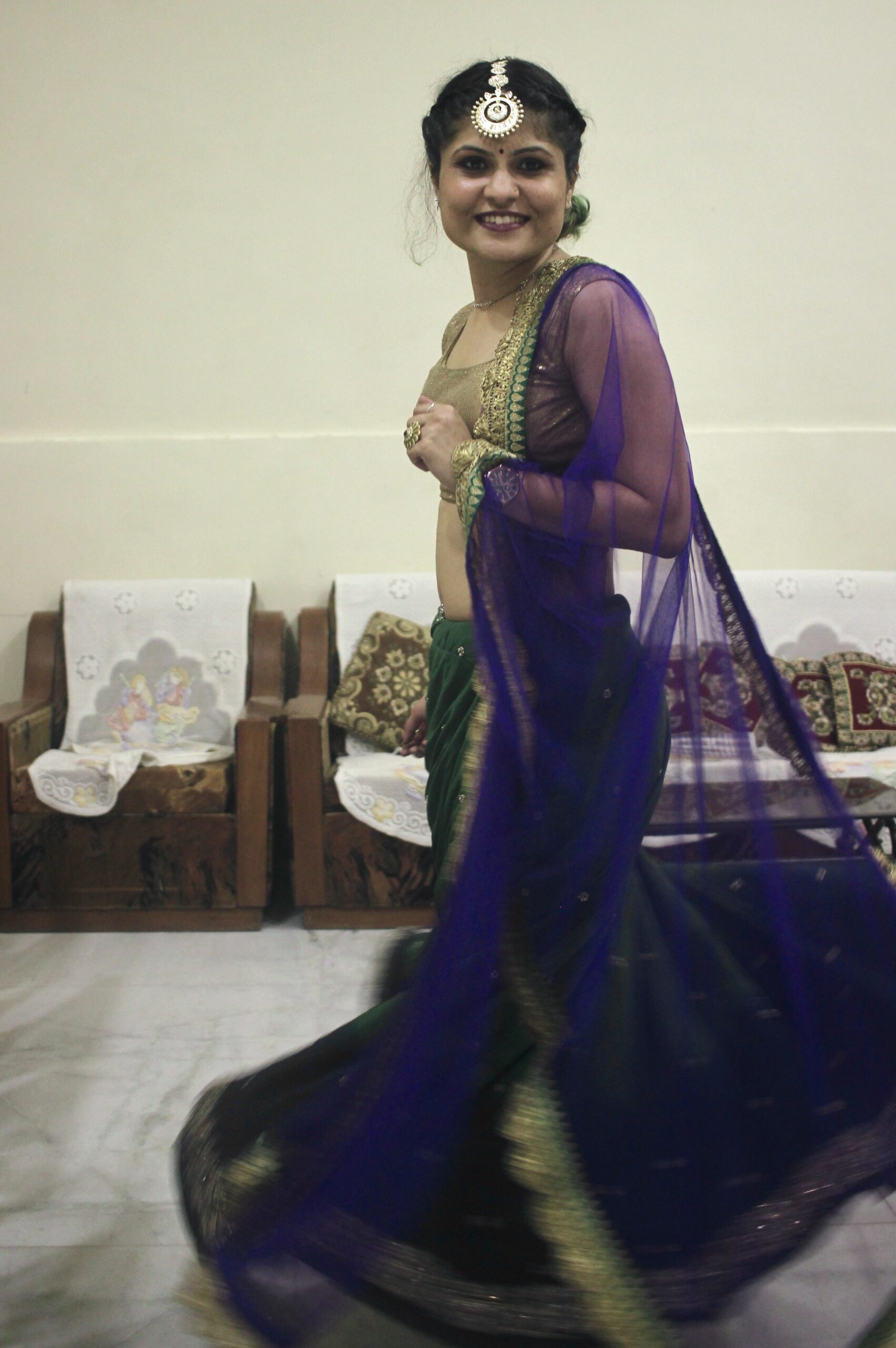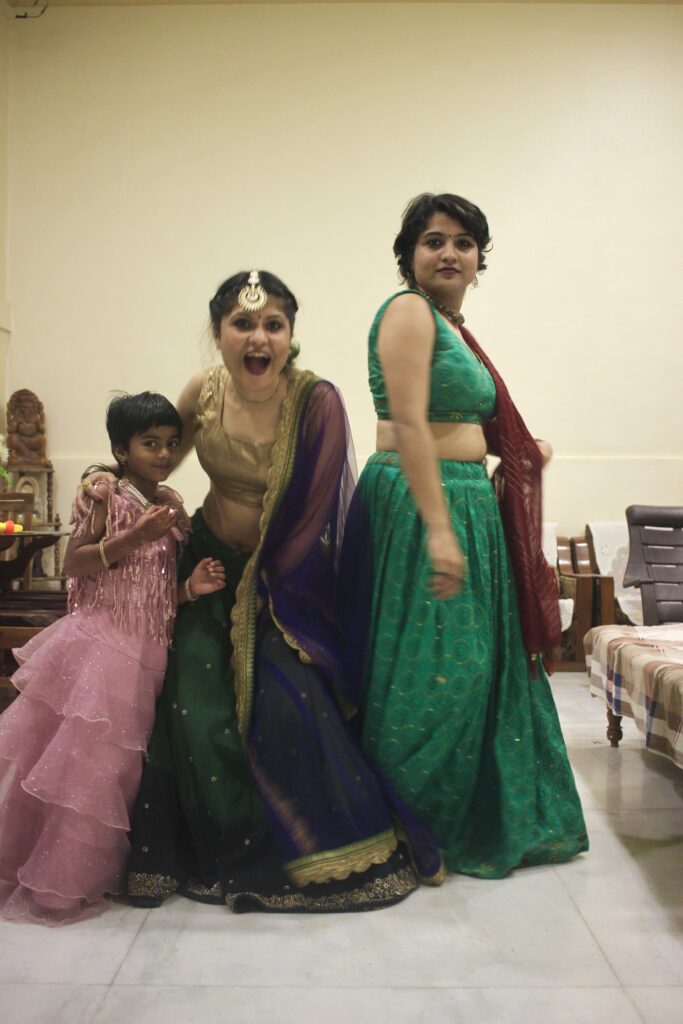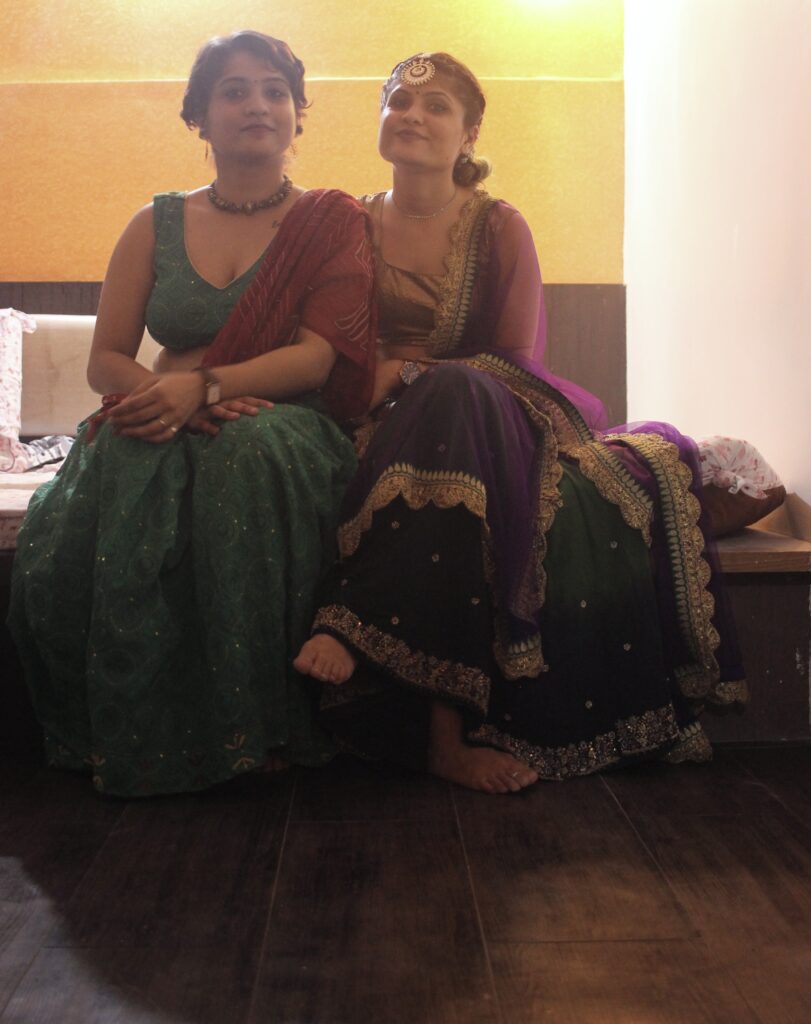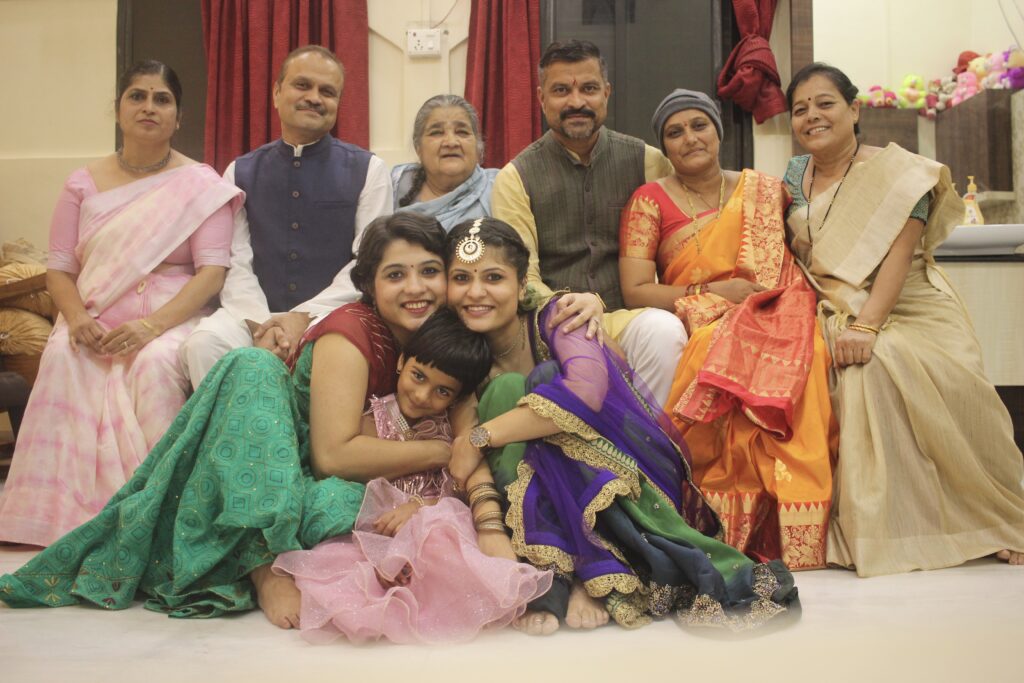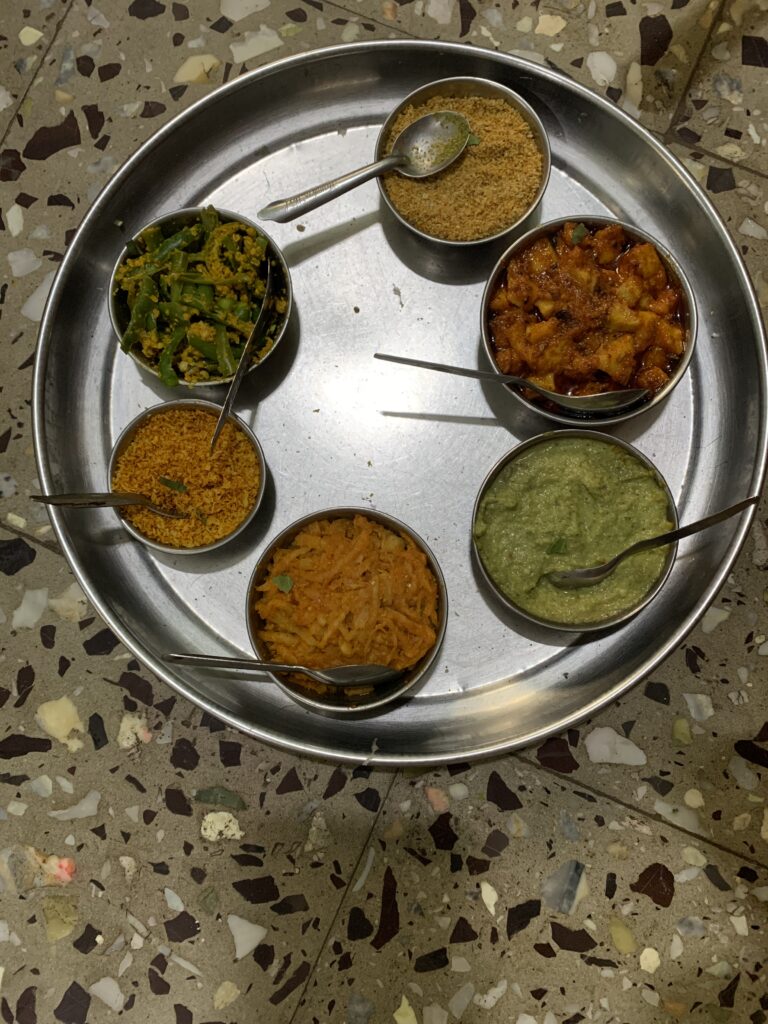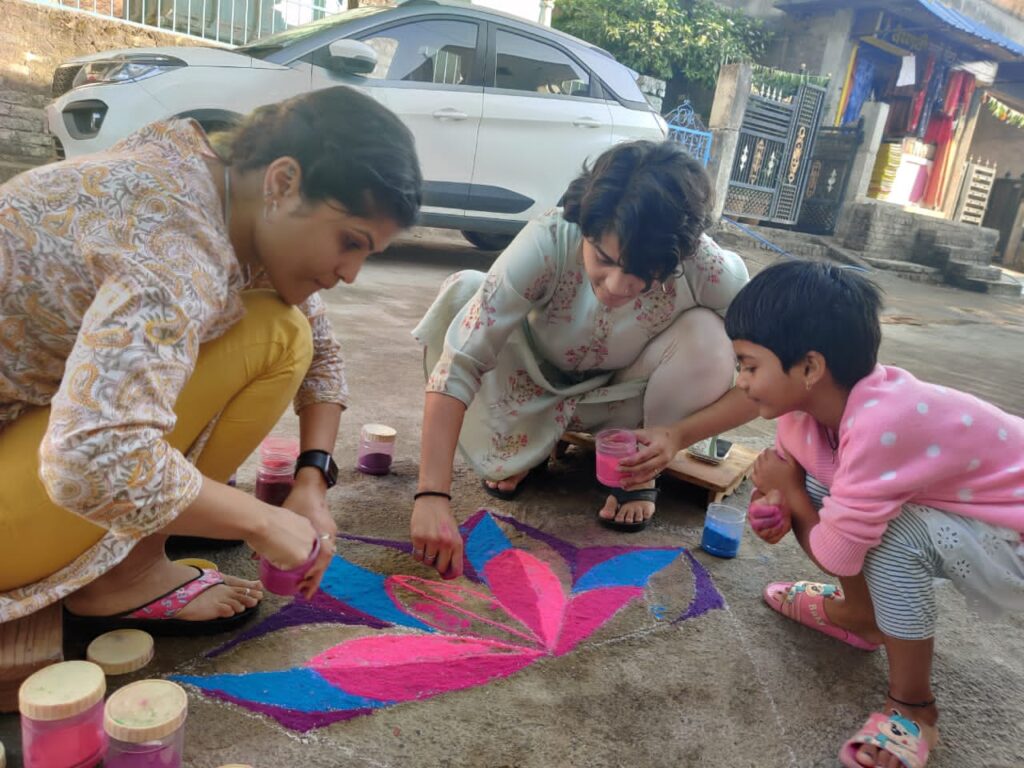Diyas and lanterns are the stuff of my soul. I am also grateful for family and friends coming together with the soul aim of making merry and having food. Last year, Diwali followed papa coming back from the hospital after his bypass surgery. It felt so much brighter than a regular no-bypass Diwali. This year, we are learning to celebrate through kaki’s chemos. It is to me what I guess new years are to some; a mental restart, a new-ish bright page, even if in the same tattered notebook.
Then on the other hand is the unacknowledged labor behind the food and the merry. Who is making it? Who is serving it? Who is it being served to?
I come to my village each year to celebrate Diwali in the house my great-great-grandparents built and my parents took care of. In some ways, it is like traveling back in time, to a place before setting straight (at least in theory) of gender norms. I am expected to toil in the kitchen and create a pretty context for merry to be made in. I get complimented on how fast and soft my chapatis are, how nice my rangoli is. I even get praised for my part in bringing up babyr. “Your kids will be very well disciplined and loved” I am told. I don’t care about these things. I want to be complimented or just acknowledged for my career decisions, how well I drive or how I help manage mental health- things I try to be good at.
The tiny pigeonhole of gender norms is suffocating. It makes me feel invisible on good days and disassociated on others. I play games to entertain myself. I hide in my room and see if they think of me for anything else but a servile task. I count the number of times they get R’s and my names mixed up. More often than seems fair. We look the same to them. We are pawns in this game of patriarchy. Any pawn can serve papad, achar, chutney, salad, and reheat plates every 10 minutes, it takes a man to drive you to the hospital.
I need to yell at someone; maybe throw a (delicate) punch. Any non-abstract, even slightly guilty entity would suffice. My male cousins and elders don’t seem to be the perpetrators. They are also the victims. They lack the skills to make round, soft chapatis, who were never taught, never complimented (to reinforce the joy they should get) for tending and nurturing. Then who do I speak to, to set things right? Can I talk to the manager?
Having found no one yet, I spent my Dhanteras pissed off at Ram and my Bhaubeej at a grey kurta for being neutral and dull.
I was fuming these words over my 167th chapati when R walked to me, 3 types of achar and 2 types of papad in one arm, and gave me a sip of coffee with the other, before returning to serve. In the space provided by a loving sip of coffee, my ‘me against the patriarchy’ fury calmed to ‘this will pass’ placidity, which led to joy about the diyas, lanterns, rangolis, chaklis, and dressing-up.
Dear allies, who lie tired and aching in bed at the end of a long day of cooking, decorating, serving, cleaning up, thank god for you.
